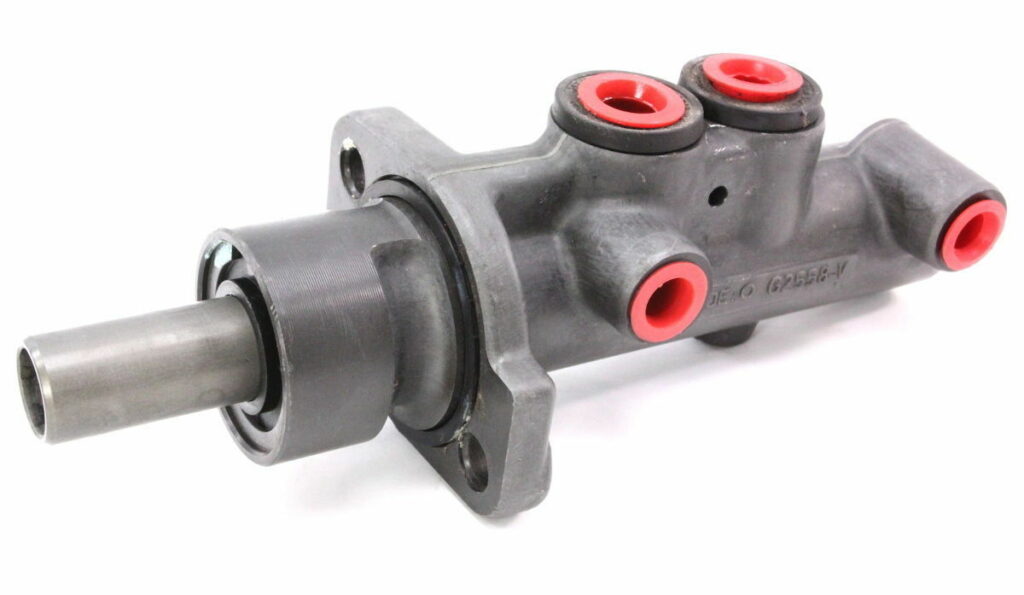What is a Brake Master Cylinder and How to Tell if it’s Failing
The braking system is one of the most critical safety components of any vehicle, ensuring that you can safely bring your car to a stop when needed. The brake master cylinder plays a vital role in this system, and understanding its function and the signs of potential failure is essential for every driver. In this blog post, we will explore the brake master cylinder, discuss its role in the braking system, and provide tips on how to identify and address issues before they lead to potentially dangerous situations.
What is a Brake Master Cylinder?
A brake master cylinder is a hydraulic device that generates and distributes the hydraulic pressure required to operate a vehicle’s braking system. It is typically located under the hood, near the brake fluid reservoir, and connected to the brake pedal through a pushrod. When you press the brake pedal, the master cylinder generates hydraulic pressure, which is then transmitted through the brake lines to the brake calipers and wheel cylinders. This pressure applies force to the brake pads, which then press against the brake rotors or drums, creating friction and slowing down the vehicle.
Signs of a Failing Brake Master Cylinder
A failing brake master cylinder can result in decreased braking performance or even a complete loss of braking ability. Therefore, it is crucial to recognize the warning signs and take appropriate action. Here are some common symptoms of a failing brake master cylinder:
- Spongy or soft brake pedal: If the brake pedal feels spongy or soft when pressed, it could indicate a problem with the master cylinder. Air or contaminants in the brake fluid, worn seals, or internal damage can cause the pedal to feel less responsive than usual.
- Slow or unresponsive brakes: If your vehicle takes longer to come to a stop or the brakes feel unresponsive, the brake master cylinder could be at fault. This could be due to internal leaks, worn components, or other issues within the master cylinder.
- Warning lights on the dashboard: If the brake warning light or the ABS warning light illuminates on your dashboard, it could indicate a problem with the brake master cylinder or another component within the braking system.
- Brake fluid leaks: A leak in the brake master cylinder or its connections can cause a loss of brake fluid, leading to reduced hydraulic pressure and compromised braking performance. Inspect the area around the master cylinder for any signs of fluid leakage.
- Uneven brake pad wear: If the brake pads are wearing unevenly or more rapidly than usual, it could be a sign that the brake master cylinder is not distributing hydraulic pressure evenly to the brake calipers and wheel cylinders.
- Inconsistent brake pressure: If you experience inconsistent brake pressure while driving, such as the brake pedal feeling firm one moment and then soft the next, it could be an indication of a failing brake master cylinder.
Causes of Brake Master Cylinder Failure
Brake master cylinders can fail for several reasons, including:
- Wear and tear due to aging: Over time, the seals and internal components of the brake master cylinder can wear out, leading to leaks or reduced performance.
- Contaminated brake fluid: Brake fluid can become contaminated with moisture, dirt, or other debris, which can cause corrosion and damage to the master cylinder’s internal components.
- Damaged seals or internal components: Damage to the seals or other internal components of the master cylinder can lead to leaks, reduced hydraulic pressure, and compromised braking performance.
- Incorrect installation or maintenance: If the brake master cylinder or related components are not installed or maintained correctly, it can result in premature failure or reduced performance.
If you think your brake master cylinder could be failing or already did in your Audi, BMW or Volkswagen head over to ModdedEuros.com where we stock all the top replacement parts from brands such as FTE and ATE .


